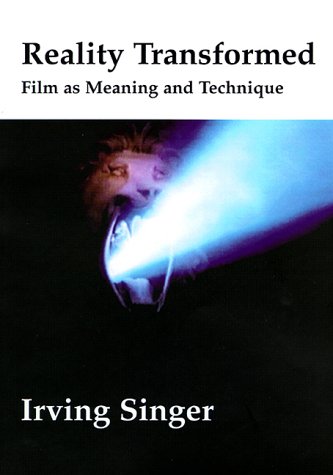Since the late 1960s film theory has been dominated by "grand theories" that examine motion pictures from a psychoanalytic, semiotic, or Marxist point of view. Irving Singer offers an approach to the philosophy of film by returning to the classical debate between realist and formalists - he shows how the opposing positions may be harmonized and united. He accepts the realist claim that films somehow "capture" reality, but agrees with the formalist belief that they transform it. Extending his earlier work on meaning in art and life, he suggests that the meaningfulness of movies derives from techniques that re-create reality in the process of presenting it to viewers who have learned to appreciate the aesthetics of cinematic transformation. Singer concentrates on questions about appearance and reality, the visual and the literary, and the interplay between communication as a goal and alienation as a hazard in films of every sort. In three chapters he provides suggestive reading of Woody Allen's "The Purple Rose of Cairo", Luchino Visconti's "Death in Venice", and Jean Renoir's "The Rules of the Game".
The book should be of interest to the general reader as well as students in all fields related to film studies.
- ISBN10 0262194031
- ISBN13 9780262194037
- Publish Date 1 September 1998
- Publish Status Active
- Out of Print 18 January 2001
- Publish Country US
- Publisher MIT Press Ltd
- Imprint MIT Press
- Format Hardcover
- Pages 180
- Language English
